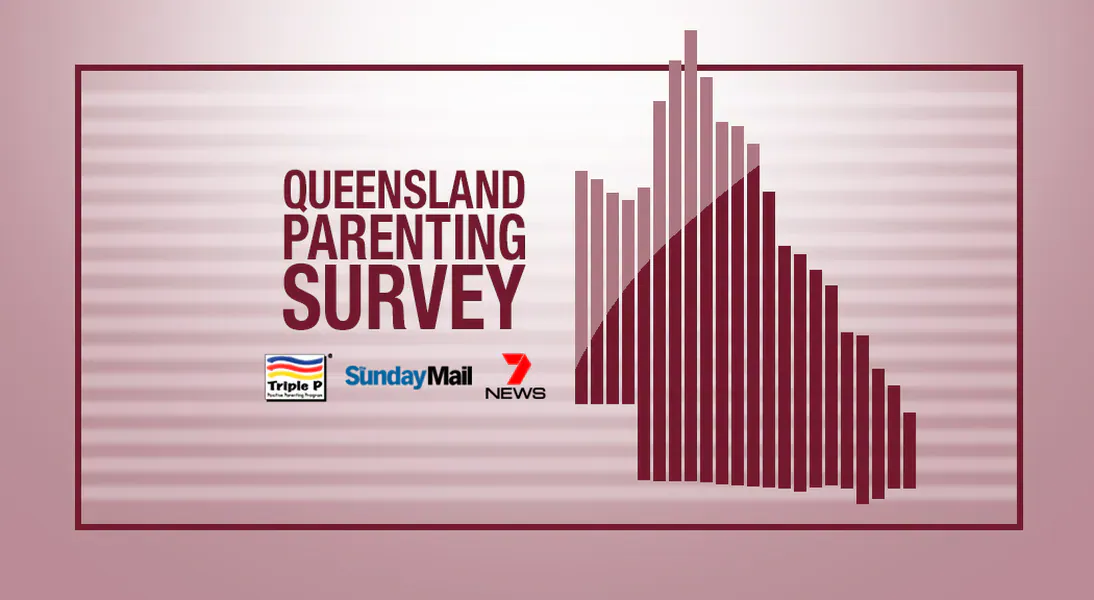Healthy lifestyle, bullying, and ‘brattish’ behaviour Qld’s top three parenting concerns

The top three concerns of Queensland parents have all been revealed in this year’s annual Triple P – Positive Parenting Program survey.
Making sure kids have a healthy lifestyle, dealing with bullying, and managing disobedience and disrespect are the issues worrying parents the most.
More than 1000 parents responded to the statewide, two-week survey, launched four years ago as an annual check-in with Queensland parents of children aged 0-16.
Making sure kids live a healthy lifestyle has maintained its number one spot from last year, with 58 per cent of parents identifying this as a key concern.
54 per cent of parents nominated concern about their child being bullied as a major issue, jumping an incredible three places over the past 12 months.
The third biggest worry for parents was dealing with their children’s disobedience and lack of respect, with 53 per cent saying it was causing concern.
Triple P founder, clinical psychologist and international parenting researcher Professor Matt Sanders said the fact parents were prioritising a healthy and active family life was a major positive.
“Establishing healthy habits in children, such as being physically active, managing screen time, eating well and getting plenty of sleep in a positive family environment helps set children up for life-long success,” he said.
“There are so many simple strategies parents can put in place from when kids are young, such as setting up rules and routines around screen time and ensuring plenty of active, outside play.
“It’s absolutely achievable to raise children to have a healthy lifestyle, and many parents are already managing this aspect of parenting incredibly well.”
Professor Sanders said it’s the job of parents to put boundaries and appropriate consequences in place that children understand and respect, and which make family life more enjoyable.
“It can be annoying to set up initially, but having consistent rules and routines that are consistently applied saves a huge amount of family stress and conflict in the long run,” he said.
Professor Sanders said it was difficult to say if growing concern about bullying was an increase in actual bullying, an increase in parental concern about bullying, or the result of increased awareness about the issue.
“One thing that’s happened over the past 12 months is a much bigger and broader conversation around bullying, and the serious dangers it can pose to a child’s mental health,” he said.
“Moving forward, I’d like to also see a greater focus on the critical role parents can play in educating their child how not to be a bully, and how to be resilient and cope if they are being bullied.
“Respect for others and personal resilience are life skills that can be taught and can be learnt, and there is no greater teacher or role model than a child’s own parent or carer.”
Professor Sanders said the principles of positive parenting also apply when managing challenging child behaviour such as disobedience and disrespect.
“Raising children in a positive, nurturing environment with age-appropriate rules and routines in place is proven to prevent and reduce child behaviour problems, and improve parents’ mental health and wellbeing,” he said.
“It can really bring the pressure down at home if parents take the time to learn how positive parenting works, because the evidence shows even small changes can make a big difference.”
Triple P parenting support is free in Queensland through a State Government initiative to provide families with more support.
To register for free Triple P seminars and sessions or find out more about the support available in your local area visit www.triplep-parenting.net
More results from the 2019 Qld Parenting Survey below:
Top 5 parenting concerns
- Making sure kids have a healthy lifestyle (58% of parents concerned)
- Bullying (54%)
- Kids being disobedient or disrespectful (53%)
- Kids doing well academically at school (52%)
- Managing screen time (48%)
- 36% of parents are extremely worried about their children accessing ice/methamphetamines, compared to 20% in 2018
- 30% are extremely worried about access to heroin, compared to 15% in 2018
- 27% are extremely worried about access to cocaine, compared to 13% in 2018
- 25% are extremely worried about access to ecstasy, compared to 11% in 2018
- 58% of children are paying less attention to other activities because of screen time, up 10% from 2018
- 56% of children are not listening to others, up 22% from 2018
- 54% are having less conversation, up 12% from 2018
- 83% of parents say they talk about the problem and explain how they want children to behave next time, up 27% from 2018
- 47% take away a thing (e.g. toy, phone), up 10% from 2018
- 30% send kids to a quiet spot, no change from 2018.
- 26% yell at their children, up 8% from 2018
- 51% of parents don’t smack their children at all, compared to 52% in 2018.
- 52% of parents say their children have been bullied in the past year, compared to 40% in 2018
- 45% of parents say their children have been bullied in person by another child, up from 34% in 2018
- 20% of parents say their children have been bullied by a sibling, up from 11% last year
- 8% have been bullied via social media using the Internet, up from 6% last year
- 48% said yes because it would help them feel more patient, resilient and confident
- 45% said yes because learning how to better manage their child’s behavior would make life less stressful
- 11% said yes because they wouldn’t make the same mistakes their parents did
Substances that worry parents the most
Impact of screen time on family life
Discipline strategies
Experience of bullying in the past 12 months
Top responses to the question ‘Do you think you would be a better parent if you did a parenting course?’
Attitudes towards parenting
- 70% strongly agreed they’re glad to be a parent
- 48% strongly agreed being a parent is an important part of their identity
- 30% strongly agreed children are being spoilt with material possessions
- 29% strongly agreed children don’t spend enough time outdoors
- 20% strongly agreed parents don’t spend enough time with their children
- 15% strongly agreed children seem to lack resilience
Main pressures impacting on parenting
- 73% of parents said they felt overwhelmed by work and family commitments
- 55% said financial difficulties
- 53% said health problems including mental health issues
- 48% said lack of partner and/or family support
- 40% said not knowing enough about child behaviour and development
Media Contact:
Media Relations, Rachel Stewart, rachel@triplep.net or 0408 130767.
